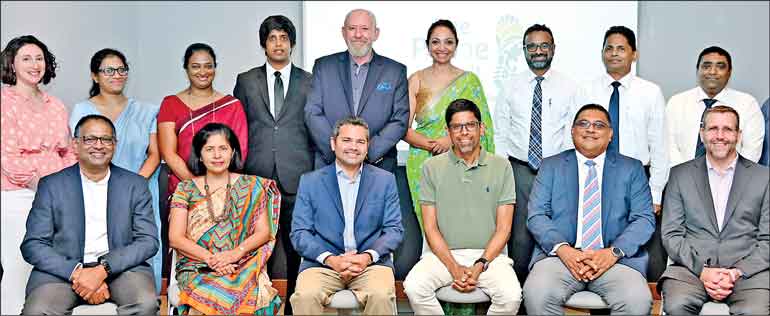Friday Feb 20, 2026
Friday Feb 20, 2026
Tuesday, 7 May 2024 00:10 - - {{hitsCtrl.values.hits}}

A collaborative effort between seven regional tea plantation companies and the Sri Lanka Tourism Alliance has culminated in the formation of the destination management organisation (DMO) to promote and manage The Pekoe Trail, symbolising a partnership between tea and tourism industries.
The Pekoe Trail Company (Guarantee) Ltd., is an innovative approach adopted by the Tourism Resilience Project to ensure the trail’s long-term sustainability and effective management.
The Pekoe Trail is a 300km, 22-stage discovery of Sri Lanka on foot, creating international headlines for Sri Lanka as a destination for wellness and nature-based travel. It is a unique tourism experience that supports the long-term environmental sustainability of habitats as well as the social and commercial sustainability of the communities it passes through.
As the first of its kind (an independent, private sector led entity to manage a tourism experience), the Pekoe Trail DMO sets a strong precedent for sustainable tourism management in the country. By effectively balancing diverse interests of a wide array of stakeholders, the DMO serves as a model for the future of sustainable tourism in Sri Lanka.
This union not only signifies a merging of interests but also demonstrates a shared commitment to advancing national interests (in this instance, to manage, maintain and promote the Pekoe Trail through a commercial, private-sector lens) through joint initiatives.
This inclusive approach ensures that interests of a wide array of stakeholders including regional plantation companies, donor organisations, government and state enterprises are considered and balanced, thereby fostering a collaborative environment conducive to the preservation and promotion of the Pekoe Trail.
The DMO has been endorsed by the Sri Lanka Tourism Development Authority (SLTDA), the apex body responsible for tourism. This helps ensure operations are meticulously conducted in accordance with Sri Lankan laws, thereby bolstering donor confidence and fostering a conducive environment for future funding endeavours.
The DMO has also been cited by the head of the Presidential Task Force for Tourism Development as a model that should be adapted and scaled at a national level, across other sites.
One of the key features of the DMO model is its ability to generate economic benefits not only for the organisation itself but also for partners and surrounding communities. These economic benefits are expected to trickle down to the community, resulting in various socio-economic advantages such as creation of new jobs, infrastructure development, and enhanced livelihoods. The success of the Pekoe Trail DMO has the potential to create a ripple effect, inspiring other touristic destinations in Sri Lanka and even wider South Asia to adopt similar models for destination management.
By providing a platform for emulation, adoption, and adaptation, the DMO paves the way for scalable solutions to address visitor management requirements of other high-tourism locations. As a result, the impact of the Pekoe Trail DMO extends beyond the Central Highlands of Sri Lanka, contributing to the broader economic and social advancement through sustainable tourism practices.
Supported generously by the European Union (EU) with additional support from the United States Agency for International Development (USAID), the Pekoe Trail promises an immersive and enriching experience for those seeking to connect with the authentic essence of Sri Lanka and will be open to travellers in stages commencing November 2024.